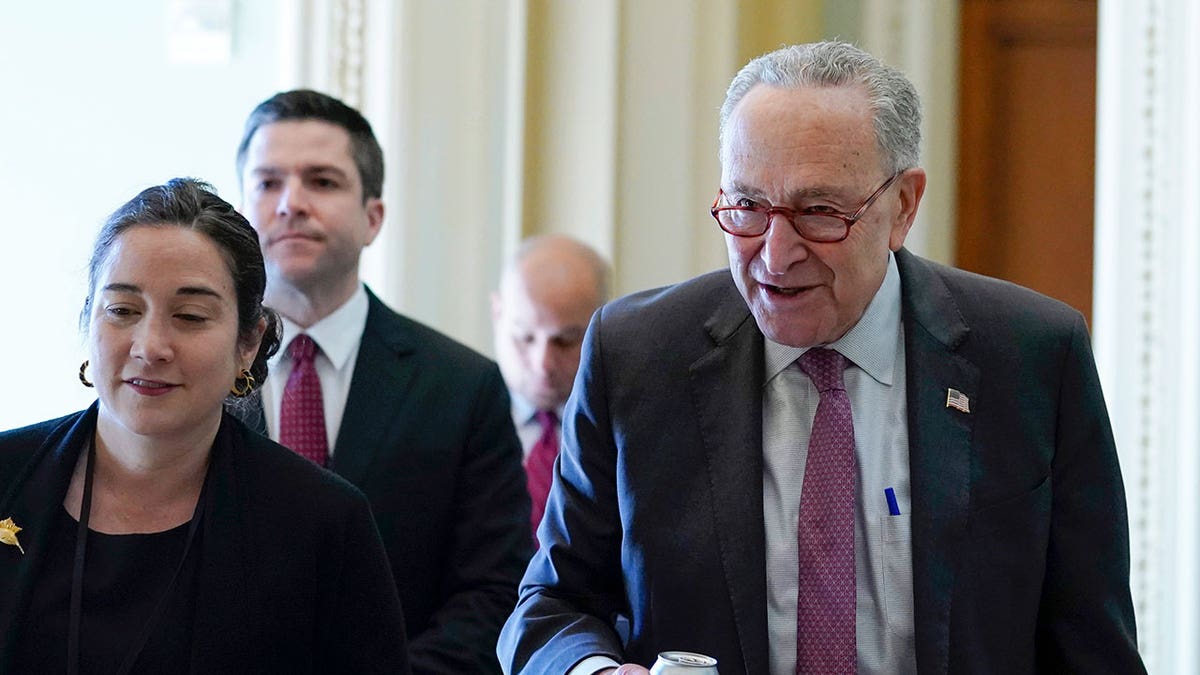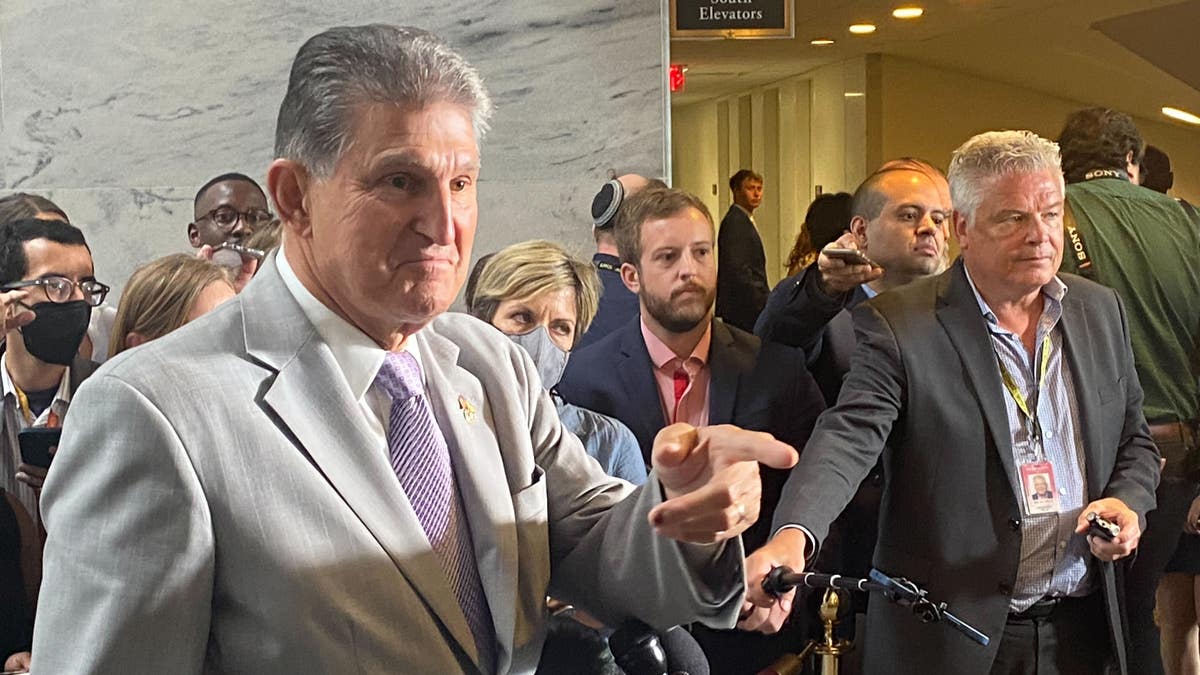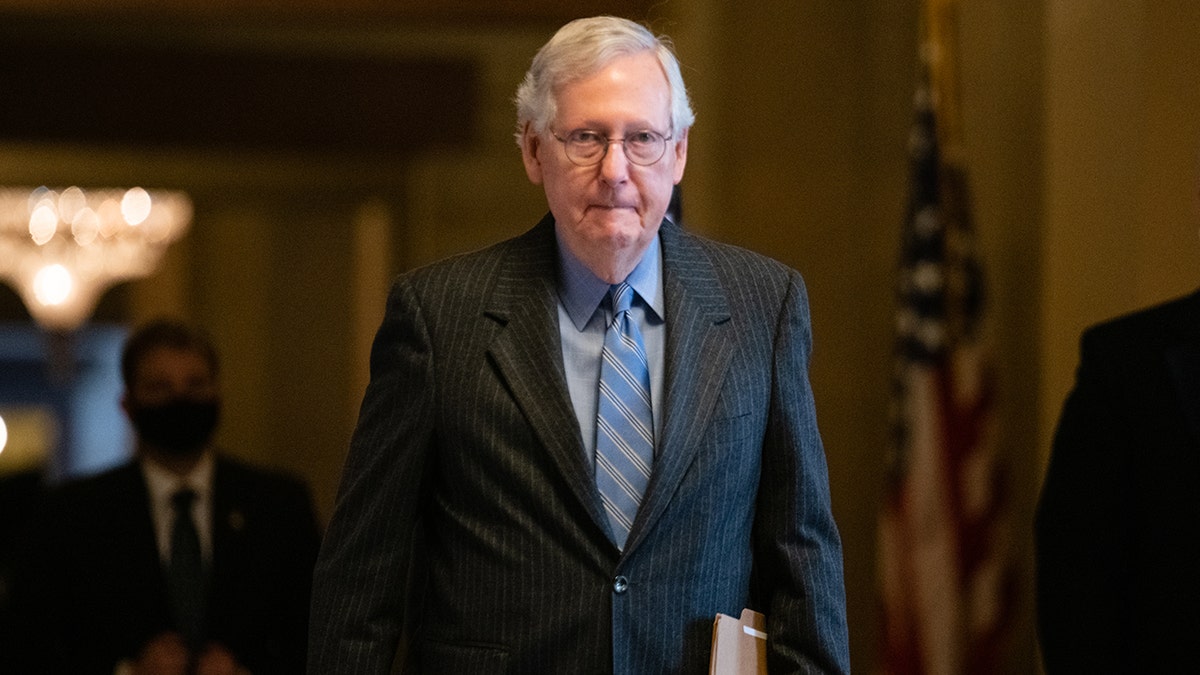Fox News Flash top headlines for August 3
Fox News Flash top headlines are here. Check out what's clicking on Foxnews.com.
The Democrats' social spending and taxation bill could direct money to climate-related protests, Republicans say, citing a provision that could give money to nonprofits for "facilitating engagement" in government processes.
Meanwhile, Democrats dispute that characterization as "misleading," as the partisan back-and-forth over the legislation continues and top Democrats race to pass the bill as soon as possible.
Page 694 of the 735-page social spending bill, titled the "Inflation Reduction Act," provides for "environmental and climate justice block grants." The entire program is worth $3 billion, and the planned uses for the money include reducing outdoor and toxic indoor air pollution, mitigating wildfires and more – specifically in underserved communities.
However, also among the "eligible activities" for the program is "facilitating engagement of disadvantage communities in State and Federal public processes." Among the "eligible entities" to receive the funding are "community-based nonprofit organizations."

Senate Majority Leader Chuck Schumer, D-N.Y., aims to pass Democrats' social spending bill as soon as possible before the midterm elections. (AP Photo/Mariam Zuhaib)
A Republican leadership aide said the combination of nonprofits being eligible for the funding, and "community engagement" being one of the permitted uses, could conceivably result in government dollars funding liberal climate protests.
A Democratic aide strongly disputes that characterization.
"This is an extreme misreading of the legislation. The language has to do with stakeholder input in permitting processes and enabling communities that don’t have the ability to participate in those decisions to participate in the review processes," the Democratic aide said. "This would actually lead to faster processes, earlier incorporation of stakeholders in planning for infrastructure, and reduced litigation."
The GOP leadership aide disagrees, arguing the bill could end up funding, "woke, Green New Deal protests."

Sen. Joe Manchin, D-W.Va., calls on a reporter during a press conference about Democrats' reconciliation bill. (Tyler Olson/Fox News)
Representatives for Majority Leader Chuck Schumer, D-N.Y., did not reply to a request for comment on GOP concerns about the proposed program.
Sen. Joe Manchin, D-W.Va., and Schumer announced a deal on the social spending bill last week, after more than a year of negotiations. It follows previous versions of bills Democrats tried to advance via budget reconciliation, a process which allows the Senate to circumvent the 60-vote filibuster.
The new bill is significantly smaller than previous $3 trillion versions of a "Build Back Better" bill. The bill includes prescription drug reform, major spending on climate issues, extends Affordable Care Act benefits, and increases taxes, including on large corporations.
SCHUMER-MANCHIN SOCIAL SPENDING AND TAX BILL FACES MAJOR HURDLES AS DEMS SEEK QUICK PASSAGE
This environmental and climate justice block grant program is just one of many in the major bill, which would spend $433 billion and would raise $739 billion in tax revenue, according to Democrats. However, it adds to a series of elements Republicans are highlighting as objectionable as they seek to kill it.
Some other items include an up to $7,500 tax credit for families making up to $300,000 to buy new electric cars costing up to $80,000, and a "Waste Emissions Charge" that would hit the energy industry over its methane emissions. Natural gas industry representatives argue that would significantly increase prices.

Senate Minority Leader Mitch McConnell, R-Ky., and his caucus are hammering Democrats' social spending bill, particularly over Joint Committee on Taxation data that says it would raise taxes on most income brackets. (Eric Lee/Bloomberg via Getty Images)
Republicans are also hammering Democrats over what the Joint Committee on Taxation says will be tax increases on most income brackets as a result of the legislation.
However, Manchin disputes the Joint Committee on Taxation data, saying he'll "agree to disagree" with it and says the legislation in general is a strong bill that in normal times would be bipartisan.
"My Republican colleagues are my friends, and I've worked with them tremendously. And I will continue to work with them any way, shape or form," Manchin said this week. "But these are things that we've all talked about in bipartisan groups. How can we start paying down our debt and… take our finances seriously, our financial house in order? These are things every time we get together as a group, bipartisan support, this is what we talk about. How can we get more production?"
CLICK HERE TO GET THE FOX NEWS APP
Democrats are seeking to pass the bill potentially as early as this weekend.
Currently, the Senate is waiting on the parliamentarian to finish a process to highlight certain elements of the bill that may not be permitted under the reconciliation process.
Before it can move to final passage, the Senate will have to go through a "vote-a-rama," in which senators are expected to take dozens of votes on amendments to the bill in a marathon session that could nearly a full day. If the Senate passes the legislation, the House of Representatives is expected to come back from its recess to send the bill to President Biden's desk.















































